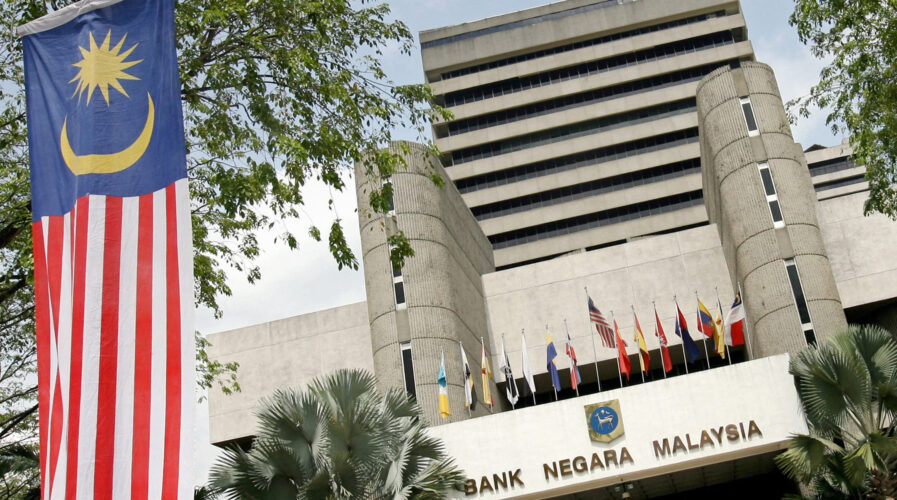
(Photo by AFP)
All eyes on digital banking licenses this week in Malaysia
The central bank of Malaysia, Bank Negara is expected to award digital banking licenses to five applicants soon. A total of 29 applicants were submitted during the six-month nomination period that ended on June 30, 2021.
The 29 applicants for Malaysia’s digital banking licenses are made up of a mixture of industry players which include banks, e-commerce operators, fintech players, and even state governments.
In Southeast Asia, only Singapore and the Philippines have so far awarded digital banking licenses. Singapore awarded four digital banking licenses while the Philippines has capped it at six. The Bank of Thailand also plans to issue the guidelines for digital banks in June this year.
A digital banking license would enable non-banking companies to conduct all banking services digitally. This is most likely done through online channels or platforms like an app. Using fintech, digital banking licenses would enable the company to provide services at a much more convenient and faster pace compared to traditional banking services. Digital banks also have the capabilities of reaching out to the unbanked community.
The largest digital bank in the world, Brazil’s Nubank, which was founded nearly a decade ago, was successful because it was able to connect to customers in the country by offering cheaper financial services like credit cards. The bank has around 35 million customers.
In Asia, digital banks in China have about 5% of the country’s unsecured consumer loan market and more than 7% of online SME loans. WeBank of China was also selected as the best digital bank in the Asia Pacific region. KakaoBank, a South Korean digital bank currently has about a 5% share of the country’s unsecured consumer loan market as well.
As Malaysia awaits the announcement, there has already been some active activity among some of the applicants in providing such services. As digital banks are expected to promote relevant and affordable financial solutions to the public, some applicants are already doing so.
For example, Boost, the fintech arm of Axiata, which is applying for the license with RHB Bank recently became the first fully digital financier in Southeast Asia to secure an investment-grade A1 rating from RAM Ratings for its maiden tranche of Senior Class A Medium Term Notes (MTN) of securitized financing receivables.
Two other companies, Grab (which applied for the license with Singtel) and Sedania (which applied for a digital Islamic banking license) also partnered to offer Syariah compliant financial services to eligible Grab drivers and delivery partners.
Other companies hoping to secure digital banking licenses in Malaysia include a joint venture between Japanese AEON Financial Service and Malaysian unit AEON Credit Service, a consortium of BigPay, MIDF, and Ikhlas Capital, and a group led by Malaysian conglomerate Sunway Bhd.
According to a Bloomberg report, Bank Negara Malaysia Governor Nor Shamsiah Yunus said the central bank wants digital lenders to help spur more people to save for the future. The central bank also hopes for more entrepreneurs to grow their businesses to capture market share in e-Commerce in Southeast Asia, home to more than 650 million people.
With the announcement imminent, traditional banks are aware of the disruption that could be brought upon by once the licenses are awarded. As such, many banks in Malaysia have already begun adopting more digital services with the hope of being not only relevant but also attractive to consumers.
READ MORE
- The criticality of endpoint management in cybersecurity and operations
- Ethical AI: The renewed importance of safeguarding data and customer privacy in Generative AI applications
- How Japan balances AI-driven opportunities with cybersecurity needs
- Deploying SASE: Benchmarking your approach
- Insurance everywhere all at once: the digital transformation of the APAC insurance industry


